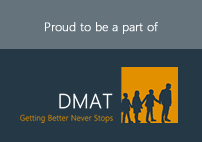History
Intent
At The Laurels Primary School, we believe that a well rounded History curriculum will allow children to gain a coherent knowledge and understanding of Britain’s past and that of the wider world. We have carefully designed our History curriculum so that children gain this knowledge as they progress through the school.
We recognise that history is all around us and plays a vital role in helping children understand the world they live in. Through the study of the past we aim to inspire curiosity and foster critical thinking, questioning and analysis. Our History curriculum encourages debate, develops empathy and nurtures a lifelong love of learning about the past. We ensure children build a secure sense of chronological awareness while deepening their understanding of key historical concepts such as change and continuity, cause and consequence and historical significance. Pupils learn how to interrogate a range of sources, consider different interpretations of the past and develop their own lines of enquiry. Our curriculum is designed to be inclusive and ambitious for all learners, enabling every child to know more, remember more and understand more about the past and how it shapes the present.
Implementation:
History is taught three half terms per year, alternating with geography to ensure broad and balanced coverage of the humanities. Units are sequenced broadly in chronological order to help children develop a secure understanding of the passing of time and historical context. All content is taught in line with the National Curriculum programmes of study.
Each unit is carefully planned using our subject Knowledge Organisers, which set out the key knowledge, skills and vocabulary children need to learn. These ensure progression both within year groups and across year groups, building historical understanding over time. Vocabulary development is explicitly taught and revisited to support understanding of key historical concepts.
Retrieval strategies are embedded within lessons to strengthen long-term memory and allow teachers to adapt their teaching in response to what pupils know and remember. Teachers plan for a balance of substantive and disciplinary knowledge in each unit, with clear endpoints used to shape the learning journey and inform assessment.
To deepen understanding and broaden cultural capital, we enrich our curriculum through trips to historical sites, museums and local landmarks, as well as workshops and themed enrichment days. These experiences bring history to life, strengthen connections to learning and help pupils develop a rich understanding of the past and its significance today.
Impact:
Through the careful intent and implementation of history throughout the school, we expect children to:
- Know more, remember more and understand more about the past
- Develop a lifelong love of history and a deep respect for people, events and cultures that have shaped the world
- Ask thoughtful questions, evaluate evidence and draw informed conclusions
- Make meaningful connections between the past and their own lives
- Use lessons from history to inform the decisions they make in the future
- Leave with a strong sense of curiosity, critical thinking and empathy
- Be prepared to engage as informed, reflective and responsible citizens in an ever-changing world



